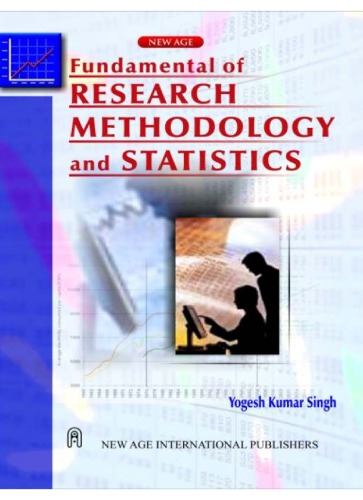

Most ebook files are in PDF format, so you can easily read them using various software such as Foxit Reader or directly on the Google Chrome browser.
Some ebook files are released by publishers in other formats such as .awz, .mobi, .epub, .fb2, etc. You may need to install specific software to read these formats on mobile/PC, such as Calibre.
Please read the tutorial at this link: https://ebookbell.com/faq
We offer FREE conversion to the popular formats you request; however, this may take some time. Therefore, right after payment, please email us, and we will try to provide the service as quickly as possible.
For some exceptional file formats or broken links (if any), please refrain from opening any disputes. Instead, email us first, and we will try to assist within a maximum of 6 hours.
EbookBell Team

4.4
22 reviews
ISBN 10: 1281788848
ISBN 13: 9781281788849
Author: Yogesh Kumar Singh
Part I: Foundations of Research Methodology
Part II: Fundamentals of Statistics for Research
Part III: Advanced Topics and Research Reporting
fundamental of research methodology and statistics
fundamentals of research methodology and data collection
what are the fundamentals of research
what is statistics in research methodology
basic statistics in research methodology
fundamentals of research methodology
Tags: Yogesh Kumar Singh, Fundamental, Methodology